#early church
Text

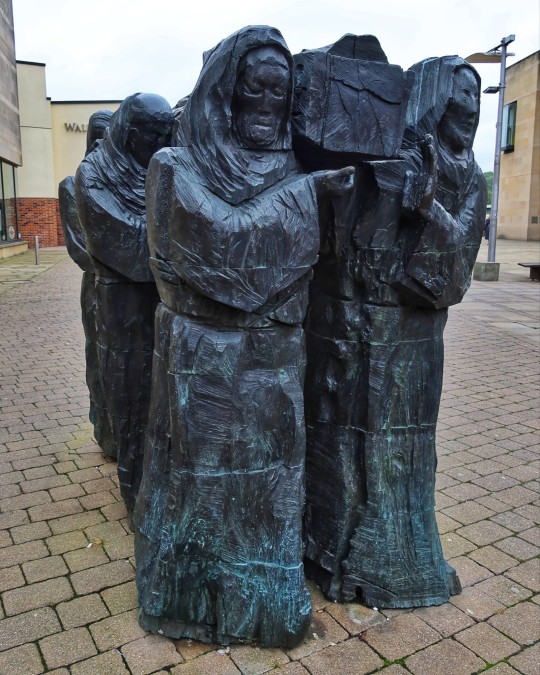




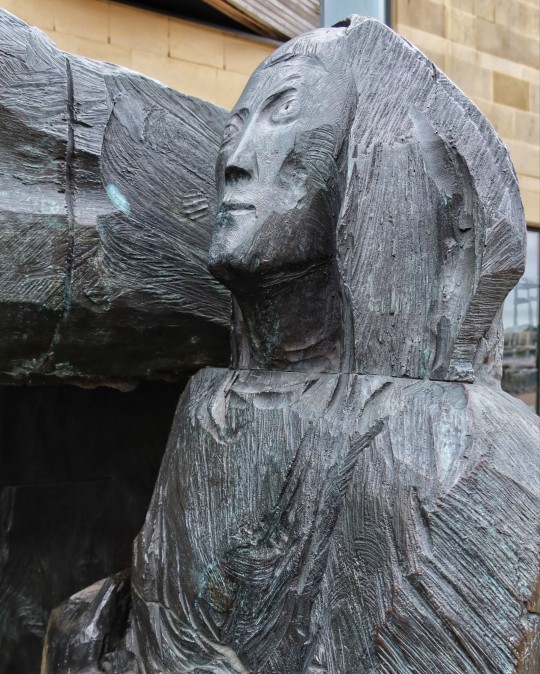

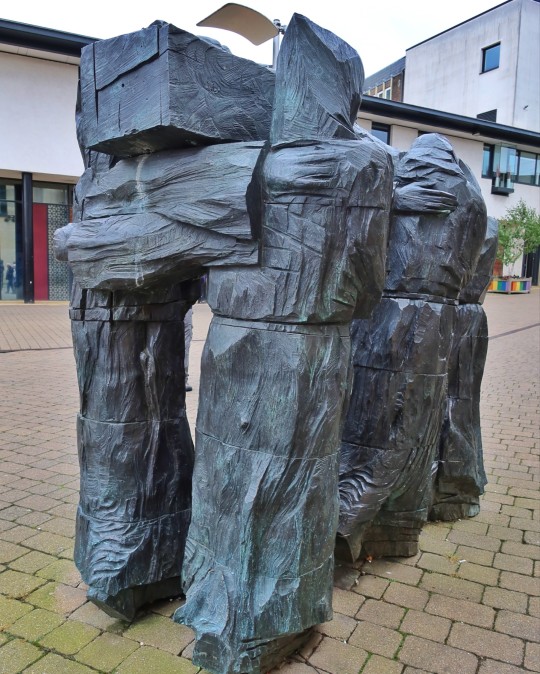
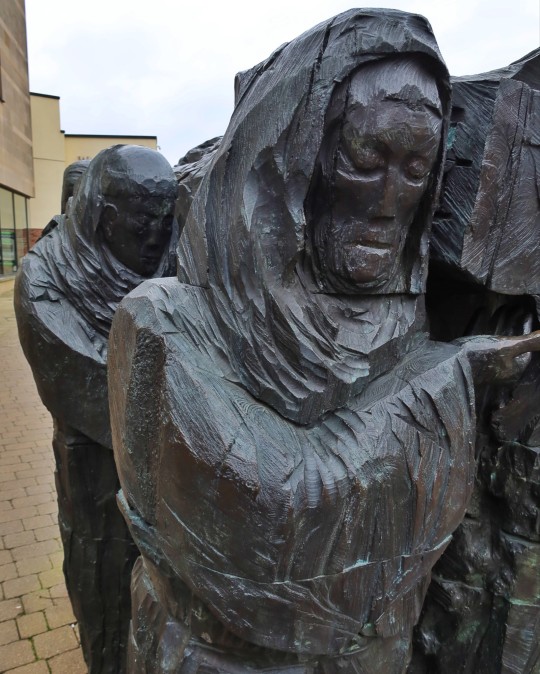
'The Journey' Contemporary Sculpture in Durham, depicting the founding of Durham through flight from Lindisfarne with the body of St. Cuthbert
#early religion#early church#viking raiders#viking#vikings#early belief#archaeology#ancient craft#ancient cultures#relic#sculpture#artwork#exile#contemporary art
104 notes
·
View notes
Text

35 notes
·
View notes
Text
See yall in the rapture imma start making Paul x Jesus fics
#bible fandom#early church#its like a mix of Judas and John in terms of shipping material#I have to read the bible in greek and then come back to make this understandable#jesus christ#paul the apostle#saul of tarsus#paul of tarsus#the judas and john ships with jesus just werent to my liking or something smh time to branch out.#'they never met' yeah once and thats enough#new testament#shenanigans
4 notes
·
View notes
Text
This isn't folklore but it is interesting to me so here ya go folks.
So the early Christian church in the Roman Empire was very much not allowed for a few centuries. This was mostly because the Romans straight up thought that Christians were cannibals (not quite at this point in history but boy howdy the middle ages were fuckin wild). And some of the early church worship and gatherings included picnics in grave yards, especially where the early leaders and saints were buried. The Romans very much didn't want people gathering in cemeteries much less going out to have lunch were are the dead people were kept. Cemeteries were seen as dirty places by the Romans because Greek and Roman religion had very serious rules about what happened to dead bodies. One of those rules was that dead bodies had to be hella far away from cities because ya know disease and shit.
So like i mentioned before the Romans thought the Christians were cannibals. The most well known reason was because the early church (and still the Catholic Church of I'm not mistaken) believed in transubstantiation (the wine and bread literally become the body and blood of Christ when blessed correctly). This didn't translate well to the Romans who thought they were literally killing/sacrificing and eating people at their services (The Romans def sacrificed people too but in a rare Roman win they also did not eat them).
The other big reason the Romans thought Christians were cannibals was because Christians tended to take in as many orphans as they could. The majority of orphans at the time were young girls because the Romans didn't want to have girls bc girls couldn't do as much for their families as sons under Roman law. So people, especially poorer Romans, would leave their baby girls out to die. The Christian communities in the empire didn't like that and would just adopt the orphans. This was a wild concept to the Roman government and the people in charge of persecuting Christians were like yeah they probably eat the kids (they didn't eat the kids). A few emperor's called bull and were like "yeah no i don't think they do that" and the officials were like "nah trust me bro they def do that."
But the number of young girls the Christian communities took in is the main reason that a lot of early church stuff has a ton of women in positions leadership (like deaconesses) and contributed to the large number of Women Saint's coming out of the early church.
If you got this far thanks for reading! I hope you enjoyed the word vomit or at least learned something new!
12 notes
·
View notes
Text
Early Interaction Between Moonies and MRA
Bio of Kang Sun-ae from FFWPU: Mrs. Kang Sun-ae was born in Seoul in 1915. She graduated from Ewha College in 1937. She lived during a time when the role and value of women were changing in Korea. She had married and had children before she joined our church in 1958, without her husband. This is a testimony that evokes the Korea of a past time, and as such is a study of some of the values and sacrifices that characterized the spirit of the early period of our movement
[The following is written by Mrs. Kang on an early experience in the Unification Church]
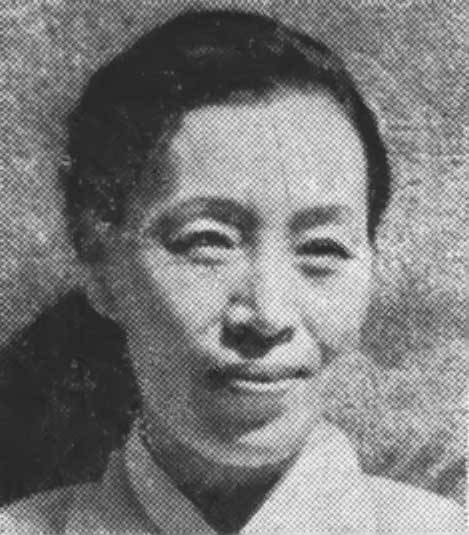
After the tour, I went back to the headquarters church. I had planned to finally take time to recuperate and begin taking medication, but Mrs. Ji Seng-ryeon came to look for me again. Once again, I had to visit our Gangwon District. We both paid a visit to the governor of Gangwon Province together with Mrs. Choi Jeong-sun. After receiving the governor’s permission to give a lecture to the officers of the Gangwon provincial government, we invited Choi Chang-rim to give the lecture. The lecture received a great review, enabling us to give a lecture to even the public officers working in the city of Chuncheon. On this foundation, our activities developed by the day and we could convey our message to the chairman of the Promotion of Reconstruction Committee,[2] the director of the YMCA, pastors, universities and even broadcasting companies. We even visited the Army Second Corps, but could not meet the commander. So we went all the way to the Counterintelligence Division and asked to talk to the general in charge. An officer reprimanded us saying, “Do you know what this place is?” We had lunch at a cafeteria for army officers. We also talked with the adviser on the troop information and education and the director of a broadcasting station.
Once, a Moral Re-Armament (MRA) movement leader paid a visit to Gangwon and invited religious figures under the name of the provincial governor. I remember being the only woman invited.
After the governor’s skilled greetings and personal introductions, we listened to the motive and purpose of MRA. After the presentation, the governor then said, “I would like to welcome Mrs. Kang, being the only woman here today, to say a few words” and made me stand. I tried to press down my beating heart and thought, “This is the moment I should convey Father’s teachings.” I started by saying, “There cannot be a result without a cause. Hence, we can see a cause through its result.” All the participants on that day, including the governor, appeared quite surprised by my message. Many said they had difficulties comprehending such a highly philosophical lecture.
Since that event, the chairman of the Promotion of Reconstruction Committee always comes to our church and give words of encouragement whenever the community leaders’ meeting was held. The entire Chuncheon area, starting from the governor to those working in the local government felt like members. However, I aimed for more, thinking, “How can I make all the people of Gangwon listen to the lecture?” So, I made another request to Governor Pak. According to him, the Home Affairs director, the Public Affairs chief, and the local section chief had to all agree on my proposal. He suggested that I meet them. I went to their offices at the provincial government building almost every day. With a heart that I had to accomplish this before Father returned to Korea from his world tour, all the prayers and dedications I invested paid off and I ended up persuading all those who opposed us.
One day, a local official, Lee Seok-bong, and I urged the Home Affairs senior director with earnest hearts. He gave in with a smile, saying, “No matter how hard I try, Mrs. Kang’s enthusiasm just outmatches mine.”
The next day, I met the local section chief and he quietly revealed to me about an internal problem and told me to talk with the chief secretary. Soon afterward, I went to the chief secretary. The chief secretary reported the matter to the governor and once he came back, he instantly summoned the Home Affairs director and the local section chief and told them right in front of me, “Why are you opposing what people are doing? Tell everyone that if they don’t do it, it will be the same as committing hara-kiri.” He instructed that an official notice be sent immediately. I met the Public Affairs chief and raised my two hands up saying “I am a Unification Church member” and then put them down. He told me that I looked like an innocent child when I did that. I was certain that our pleas were conveyed to Heaven and that it was God who was helping us.
A few hours after this decision was passed, a dam collapsed, flooding the surrounding area. The flooding caused many problems. However, because the provincial government office had immediately written the official notification, it was conveyed to the church. God’s work and providence could have almost gone up in the air in one second. This enabled the community leaders to act as Victory Over Communism lecturers.
https://familyfedihq.org/2023/02/the-righteous-are-as-bold-as-a-lion-part-5/
#Kang Sun-ae#sun-ae kang#unification church history#early unification church#early church#church history#unification church#moonies#anti-communism#korean church#unification church in korea#unification church in south korea#south korea#unification church in the republic of korea
8 notes
·
View notes
Quote
And they continued stedfastly in the apostles' doctrine and fellowship, and in breaking of bread, and in prayers. And fear came upon every soul: and many wonders and signs were done by the apostles.
Acts 2:42-43 Authorized KJV (2022)
#bible verse#scripture#acts 2#the soul#early church#twelve disciples#apostles#faithfulness#community#sharing#prayer#bread#communion#fear#wonders#miracles#signs#authorized king james version
16 notes
·
View notes
Text
Odes of Solomon, Lost Psalms of Early Christianity Discovered

“I extended my hands and hallowed my Lord,
For the expansion of my hands is His sign.
And my extension is the upright cross.
Hallelujah.” (Ode 27)
Out of all the apocryphal writings I've collected, I think the Odes of Solomon is the most beautiful, inspiring and inspired, the greatest scripture of the Jesus movement. It is the would-be book of New Testament psalms! The Book of the Odes has been described as the first known hymn-book of early Christianity. They have nothing to do with "Solomon" but somewhere-along-the-way got mislabeled and assigned to the genre of Old Testament Apocrypha as the Odes represent one of the earliest of Christian documents near the beginning of the Jesus movement within Judaism and so composed before a time when there were many Jewish or Christian writings associated with a "new" covenant, and long before the concept of a New Testament canon or collection of scriptures was conceived of. Thus, this collection of psalms was named in a way that's reminiscent of how some scriptures were assigned names during the time of the Dead Sea Scrolls and the pseudepigraphical literature. This indicates a very early date of composition.
For me the Odes, as well as another collection of mystic poems called, Metaphysical Meditations, by Paramahansa Yogananda, during my formative years as a spiritual seeker proved to be quite influential. They also gave me a preview of the type of literature I would eventually be introduced to: the Adi Granth (Sikh Scriptures) and various collections of bhakti mystic poetry of the Sants of India: Kabir, Dadu, Namdev, Paltu, Tulsi Sahib, Soamiji Maharaj, and many others.
I know a thousand Rumis the world needs to hear,
to be soothed by the Voice of the Soul
that speaks through them all.
Hafiz, Shams, Sarmad, Kabir, Mira Bai, Sahajo Bai,
Rabia, Tukaram, Hazrat Sultan Bahu, Baba Farid,
Nanak, Tulsi Sahib, Surdas, Dariya Sahib,
Dharam Das, Namdev, Ravidas, Paltu —
countless are the lovers of the Beloved.
Spiritual Awakening Radio Podcast: Odes of Solomon, Lost Psalms of Early Christianity Discovered - Listen, Download, Subscribe @ the Podcast Website:
https://SpiritualAwakeningRadio.libsyn.com/website
@ Apple Podcasts:
https://podcasts.apple.com/us/podcast/spiritual-awakening-radio/id1477577384
@ Spotify:
https://open.spotify.com/show/5kqOaSDrj630h5ou65JSjE
@ Google Podcasts:
https://podcasts.google.com/feed/aHR0cHM6Ly9mZWVkcy5saWJzeW4uY29tLzIwNzIzNi9yc3M
& @ Wherever You Subscribe and Follow Podcasts (Apple, Spotify, Google, Amazon, Audible, PodBean, Overcast, i Heart Radio, Podcast Addict, Gaana, CastBox, etc...):
https://linktr.ee/SpiritualAwakeningRadio
The Odes of Solomon consist of 41 psalms. The Odes are believed to have originated in either Antioch or Edessa in Syriac-Aramaic most likely during the First Century AD.
One scholar (James Charlesworth) said of the Odes, "Here are some of the most beautiful songs of peace and joy that the world possesses."
The New Testament scholar Bentley Layton says that the Odes were considered to be inspired scripture and were chanted by Christians who lived in Syria and all around Mesopotamia about 2,000 years ago.
J. Rendel Harris, the discoverer of one Syriac-Aramaic manuscript of the Odes, said the Odes were eventually included in the Sahidic Bible of Egypt.
These ecstatic hymns remind me of Rumi or Sufi love poetry in the tradition of "the lover and the Beloved." They also remind me of the Sikh scriptures (Adi Granth) and mystic poetry of the Sants. Many have adopted the practice of contemplating verses of the Odes and report being brought to a deeper level of devotion (bhakti); being caught up in a love-affair with God, the Ocean of Love. That's also been my experience.
ODE 12: Through the Word (Logos)... Worlds Converse!
"He filled me with words of truth
that I may speak the same.
Like the flow of waters truth flows from my mouth,
and my lips reveal its harvest,
and it gives me the gold of knowledge
for the mouth of the Lord is the true Word
and the Door of His Light.
And the Highest One gave the Word to His worlds,
which interpret His own beauty,
recite His praise,
confess His thought,
are heralds of His mind,
are instructors of His works.
For the swiftness of the Word is ineffable
and like His statement are Its swiftness and sharpness.
Its course knows no end,
It never fails, it stands.
Its descent and Its way are incomprehensible.
Like His work is Its end
for It is the Light and the dawn of thought,
and through It worlds converse...
The mouth of the Highest One spoke to them
and he was made clear by His Word.
The dwelling place of the Word is man
and Its truth is love."
In Divine Love, Light and Sound, Peace Be To You,
James Bean
Sant Mat Satsang Podcasts
Spiritual Awakening Radio
https://www.SpiritualAwakeningRadio.com
#odes of solomon#spiritual awakening radio#podcasts#apocrypha#odes#psalms#ebionites#jesus movement#yeshua#christianity#early church#bhakti#lost books of the bible
11 notes
·
View notes
Text
The circumcision of the heart
Galatians 5:12
I wish those who are disturbing you might also get themselves castrated!
Do you know why Paul was so mad at people, to the point of wishing they'd get themselves castrated? The Jewish people who came to Christ were acting as a stumbling block to the Gentiles with their requirement to get circumcised. The Gentiles would rather go back to paganism than get themselves circumcised as adults. The Jewish Christians were effectively hindering the gospel by keeping the old ways of the Judaic religion.
What to make of Paul commanding Timothy to get circumcised (Acts 16:3) then? First of all, look at what Paul tells Titus (Galatians 2:3-5) and consider Galatians 5:11-12; Paul was severely against circumcision for the Gentiles. We also know from Acts 15 that Paul argued strongly that it wasn't necessary for Gentile converts to come under the Law of Moses for salvation. Timothy on the other hand, as the son of a Jewish mother (Acts 16:1), would be considered an apostate if he wasn't circumcised, which would hinder their work. Paul didn't command Timothy’s circumcision as a way of salvation or right standing with God; it was merely the fact that having an "apostate" would hinder their work among the Jews. To be used in the synagogues, Timothy had to go through with it. And they were blessed for it (Acts 16:5).
Another good point to remember is that Paul met Timothy soon after the Jerusalem council in Acts 15, while Paul was “[delivering] to [the people] the decrees to keep” (Acts 16:4). To deliver these decrees —which included the command not to circumcise— in the synagogues for the Jews and Gentiles to read, Timothy had to be circumcised. It is ironic, I know.
R.C. Sproul made an excellent observation by pointing to what Christ did with the Pharisees in Mark 7:8 and the difference between how circumcision was viewed at the start of this new faith and how it came to change later on. Sproul wrote, “Jesus took the Pharisees to task for doing it, and Paul did the same thing; that is, in the earlier situation in which circumcision didn’t have this legal import to it, he went with the flow. He said if you want to be circumcised, fine; if you don’t want to, you don’t have to. So for those who wanted it, he did it. But when they tried to make it a law that he must circumcise other people, he steadfastly refused to do it, in order to keep the integrity of the gospel intact.”
In the early days of the church, things were done a certain way and they usually ended up getting out of hand; hence, the apostle Paul had to put his foot down and set people straight — just like he put a stop to the unrestrained giving and donations of early Christians to the church, as well as adding safeguards on how the church should financially help people in need.
You are to have the law written in your heart (Romans 2:15) or have your heart circumcised as Deuteronomy 30:6 tells us. You must seek to have a circumcision of the heart, not the flesh (Romans 2:25-29).
Circumcision saves no one. You are saved by what God has done in the finished work of Christ, not what you have done.
#R.C. Sproul#circumcision#regeneration#apostle Paul#Law of God#Holy Bible#Bible study#Bible notes#Bible verses#Bible quotes#early church#Christianity#faith#religion#church#Law of Moses#Christian quotes#reformed theology#Pharisee#decrees
8 notes
·
View notes
Text
I am concerned only about the law of God, which I have learned. That is the law which I obey, and in which I shall overcome. Besides that law, there is no other.
—Thelica, Martyr
2 notes
·
View notes
Text
The Liturgy in the New Testament

Christ is Risen! Truly He is Risen!
A couple of months ago I went to my first Bible Study at my local parish. While the Bible Study was on the Book of Revelation, my priest briefly talked about how the Liturgy was present in the New Testament Church. This topic was interesting to me because today, outside of the Orthodox Church, I see all sorts of different worship styles. And so, I want to explore how the liturgy was practiced by the early church.
~~~~~~~~~~~~~~~~~~~~~~~~~~~~~~~~~~~~
Prior to the New Testament, there was liturgical worship in Israel. After Moses was given the Ten Commandments, God instructed him and the Jews to build an altar (Ex. 20:24-26). He also gave instructions on keeping the Sabbath (Ex. 23:10-13), the annual feasts (Ex. 23:14-19), and on different offerings and furnishings in the sanctuary (Ex. 25:1-40).
There are also instances of heavenly worship revealed in the Bible. In Isaiah 6:1-8, we see the angels worshipping God and in Revelation 4, we see heaven’s liturgy.
One thing that people sometimes forget is that Jesus and his apostles were Jews. The first Christians were Jews. They worshipped the same way the rest of the Jewish nation did, which was the tradition passed down since Moses and the Prophets. There are no doubts that Judaism has a liturgy, however, they doubt that Christianity does.
There are two key things that we have to understand in order to understand the liturgy in the New Testament. The first is to understand that in the Orthodox Church, the Lord Jesus Christ is our High Priest. And as our High Priest, He inaugurates the New Covenant and is “a priest forever” (Heb. 7:17, 21). As a priest, Christ serves liturgically, and by using the word “forever”, Paul suggests that He is serving continually in the heavenly tabernacle. Jesus is also called a liturgist in Hebrews 8:1-2: “Now this is the main point of the things we are saying: We have such a High Priest, who is seated at the right hand of the throne of the Majesty in the heavens, a Minister of the sanctuary and of the true tabernacle which the Lord erected, and not man.” In Greek, the word minister translates to “leitourgos” or “liturgist”. In order for Christian worship to be fully Christian, it must mirror the worship of Christ in heaven.
Christ also serves as the “Mediator of a better covenant” (Heb. 8:6). Similar to how the sacrifices in the Old Testament prefigured Christ’s sacrifice, the Eucharistic Feast also brings us to the fullness of the New Covenant offering, which was completed at the Cross and fulfilled in the Resurrection. Christ as the High Priest’s once for all offering of Himself (Heb. 7:27) at the heavenly altar is an offering we participate in during the Divine Liturgy.
The second thing that we have to understand is that the New Testament was written with the framework that “the early Church would meet in the Temple and Synagogue and put Christ in the center of what they did as Jews” ("Liturgical Worship in the New Testament”). When Christ died, He fulfilled the Law, not destroy it (Matt. 5:17). The Old Testament was “a type and shadow of the New as Hebrews teaches” ("Liturgical Worship in the New Testament”). So, the first Christians worshipped according to the pattern of the Law, but they viewed the worship as being directed to and fulfilled in Christ ("Liturgical Worship in the New Testament ).
There are numerous scriptural references of liturgy in the New Testament.Here are some of the references:
Acts 2:42 - in Greek is literally “the prayers”, referring to specific liturgical prayers.
Acts 5:42 - the apostles were continually in the Temple praying and teaching.
Acts 6:4 - the apostles appoint deacons so that they can devote themselves to “the prayers” and to the ministry of the word.
Acts 10:2-3 - Cornelius prayed continually and saw a vision at the 9th hour of the day (3 o’clock). In 10:9, Peter was praying at the 6th hour (noon). These times were all “liturgical hours of prayer”.
Acts 13:2 - As the apostles were “ministering” to the Lord, (literally, “as they were in the liturgy of the Lord”) and were fasting, the Holy Spirit came to them. The Holy Spirit said, “Now separate to Me Barnabas and Saul...” In this passage, we learn that these two apostles were called by God during worship and that the Holy Spirit speaks in a liturgical setting.
Acts 15:22,18:8,17 - the “leaders” mentioned are leaders of the synagogue, which were liturgical worship leaders.
Acts 18:7 - the “Worshipper of God”’s house was next to the synagogue.
Acts 16:25 - “After the Days of Unleavened Bread, Pentecost are mentioned. Paul says in 1 Cor. 16:8 that he will stay in Ephesus until Pentecost. The early Church kept a liturgical ‘church calendar’” ("Liturgical Worship in the New Testament”).
Acts 20:7 - Communion was held each Sunday.
Romans 16:16 - While a kiss of greeting was common during this time, the “holy kiss” was an element of Christian liturgy that signified that the people of God were reconciled to one another. This way, they could receive the Body and Blood of Christ in peace.
Ephesians 5:14 - This is an ancient baptismal hymn. Other preexisting hymns include 1 Tim. 3:16 and 2 Tim. 2:11-13.
Hebrews 8:2 - High Priest Jesus is a “minister” in the heavenly sanctuary.
Hebrews 13:10 - Paul states that they have an altar.
Revelations 1:10 - Many people believe that John saw his vision of Christ during the Sunday liturgy, because the Lord appeared to him “in the midst of the seven lampstands” (Rev. 1:13). Lampstands were found in the Christian sanctuary just like they were found in the Hebrew temple.
Even within the Early Fathers of the Church we find testimony of the Old Testament custom informing the liturgical life of the Church. And in the New Testament the Apostles still attended the Temple worship at the prescribed hours. Clement of Alexandria testifies that there were people who prayed at the 3rd, 6th, and 9th hours, and that there were people who prayed all the time (Clement). It was also custom to pray at sunrise and sunset (Clement). Tertullian mentions that the only command that while the only command we were given was that we should pray all the time, it was customary to offer prayer at the 3rd, 6th, and 9th hours, since Scripture deemed these more solemn than the rest (Tertullian).
The Divine Liturgy that we use today (Liturgy of St. John Chrysostom) is also filled with direct quotes or allusions to the Scripture. Depending on the readings for the day, on any Sunday the Matins and Liturgy will contain between 400-500 verses of Scripture ("Liturgical Worship in the New Testament”). One of the most notable ones is the Sanctus prayer, which has its origin in Isaiah 6:3.
~~~~~~~~~~~~~~~~~~~~~~~~~~~~~~~~~~~~
It’s so interesting to me that the early Church was a liturgical church. Growing up in the Orthodox church, I never fully appreciated the Divine Liturgy and the different church services. I used to think it was boring and something I was just forced to go to. When I went to my first Protestant service, I was genuinely shocked at how different it was. I’ve seen all sorts of services, but each time I went with my friends, something just felt off. Even when I didn’t fully understand the church, I felt as if something was wrong. So learning about how the early Church was a liturgical church helped me appreciate the Divine Liturgy a lot more. I feel like I’m actively worshipping like the early Christians did and worshipping like Christ did. I feel more connected to the Church and no longer feel like Divine Liturgy is just something I’m forced to go to.
May God bless you all and until next time!
- Joanna
~~~~~~~~~~~~~~~~~~~~~~~~~~~~~~~~~~~~
Sources:
Clement. “The Stromata, Book VII.” Early Christian Writings, http://www.earlychristianwritings.com/text/clement-stromata-book7.html.
“Liturgical Worship in the New Testament” Our Life in Christ from Ancient Faith Ministries, 29 November 2004, https://www.ancientfaith.com/podcasts/ourlife/liturgical_worship_in_the_new_testament
Tertullian. On Prayer. https://documentacatholicaomnia.eu/03d/0160-0220,_Tertullianus,_Adversus_Omnes_Haereses_%5bSpuria%5d_%5bSchaff%5d,_EN.pdf.
#eastern orthodoxy#eastern orthodox#divine liturgy#greek orthodox#Early Church#New Testament#Old Testament#Church Fathers#article
5 notes
·
View notes
Text
Conflict Resolution In the Early Church
Uncover how early Christians tackled complex challenges in Acts 15. Discover pivotal strategies for dialogue and compromise in our latest post. Dive deeper into their timeless wisdom. www.LeadBiblically.com #Acts15 #EarlyChurch #ConflictResolution
Three Strategies from Acts 15:1-35:
The early Christian church faced numerous challenges as it grew and expanded beyond its Jewish roots. One pivotal moment of conflict and resolution is detailed in Acts 15:1-35, where the Apostles convened to address the contentious issue.
“But some men came down from Judea and were teaching the brothers, ‘Unless you are circumcised according to the custom of…

View On WordPress
#Acts 15#Biblical Teachings#conflict resolution#early church#Gentile Inclusion#Jerusalem Council#Religious Conflicts
0 notes
Text



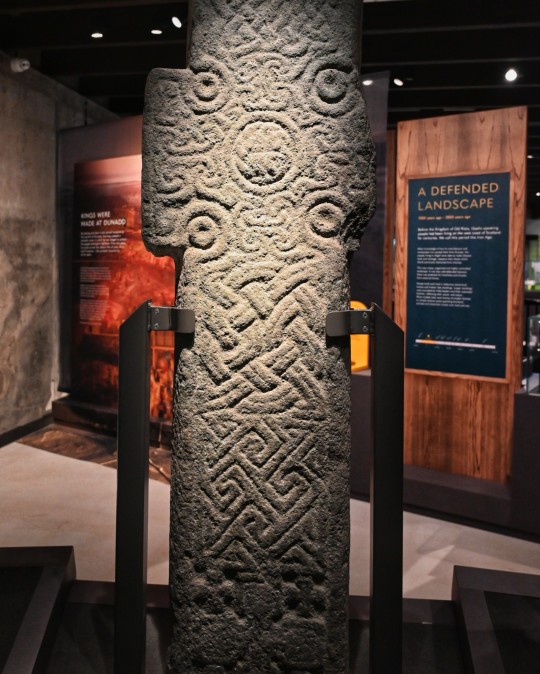
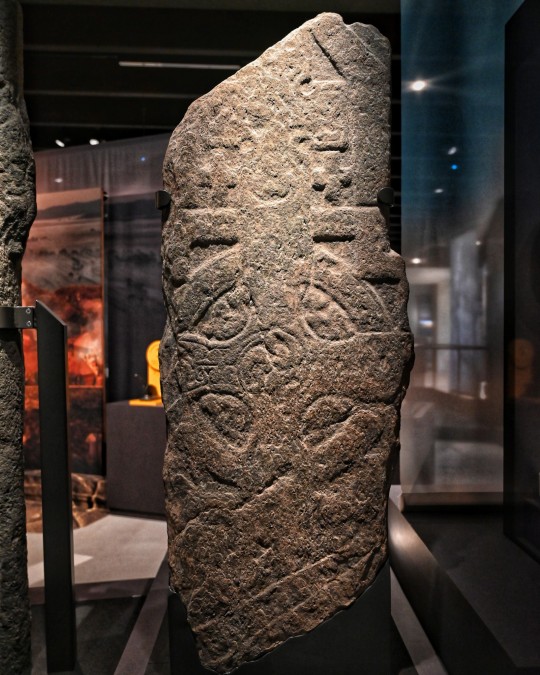
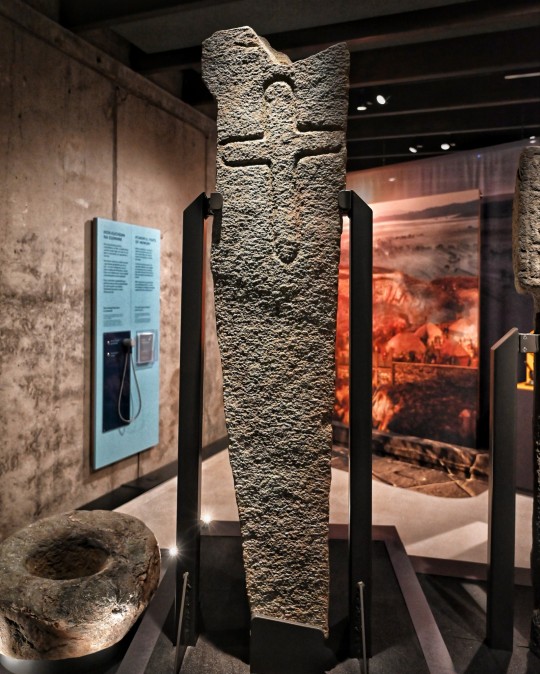

Ancient Cross Slab Selection, Kilmartin Museum, Kilmartin Glen, Argyll, Scotland
#ancient living#ancient craft#ancient cultures#early church#early religion#stone carving#knotwork#archaeology#stonework#Scotland#argyll#landscape#cross slabs
109 notes
·
View notes
Text
Today, the Church commemorates the solemnity of SS. Peter and Paul, Apostles and Martyrs.
Orate pro nobis.
Both St. Peter and St. Paul have their own special feast day, so why is their a solemn commemoration for them together? The reason is that this day recalls to our minds the fact that they both were martyred (some say on the same day) in Rome during Nero’s genocidal persecution of Christians.
The significance of their martyrdom as the focus of this solemnity reveals this commemoration as one of remembering all who have been martyred for their faith in Jesus.
Christians are the single most persecuted religious people on the planet. Most people have never heard that. I’ve been trying to raise awareness of this fact as a priest for 20 years.
Open Doors, an organization that tracks persecution of Christians worldwide, provides direct support, and releases an annual report on the persecution of Christians (https://www.opendoors.org/en-US/persecution/countries/), notices an “alarming” increase in violence against Christians by Muslims in sub-Saharan Africa. In Nigeria, the number of religiously motivated killings jumped from 4,650 in 2021 to 5,014 in 2022 — making up 89% of all religiously motivated killings worldwide. The rest are by Socialist/Communist regimes. That means on average 15 Christians are martyred daily, mostly at the hands of Muslims in sub-Saharan Africa.
The global Muslim jihadist assault is destabilizing countries in West and Central Africa as well as other nations around the world. Entire countries are at risk of collapse into extremist violence. 26 countries in Sub-Saharan Africa face high levels of persecution; half of these have violence scores in the “extremely high” range.
The global Muslim jihadist movement, which seeks to expand Sharia across not just the African continent, but the whole world, has forced Christians into constant motion, from their homes to displacement camps, or to other countries. The insecurity stemming from this experience of forced displacement makes Christians even more vulnerable to further violence. Christian girls and women, in particular, are targeted for sexual assault and being sold into slavery, while men are more likely to lose their lives, and boys are either sold into slavery or forced to become Muslims and jihadists.
Today, more than 360 million Christians suffer high levels of persecution and discrimination for their faith. In Open Doors’ World Watch List top 50 alone, 312 million Christians face very high or extreme levels of persecution. Christians killed in 2023 so far have numbered 80% more than five years ago (3,066).
As we go about our days, let us bear in mind the cost of being a disciple of Jesus, that for some it is a social norm and therefore not very costly, and for others it costs everything.
May we who live in nations where being a Christian is safe never forget the deadly plight of those who live daily in the valley of the shadow of death, and let us pray for their strength to remain faithful to the one who rose victorious from the grave.
Almighty God, whose blessed apostles Peter and Paul glorified you by their martyrdom: Grant that your Church, instructed by their teaching and example, and knit together in unity by your Spirit, may ever stand firm upon the one foundation, which is Jesus Christ our Lord; who lives and reigns with you, in the unity of the Holy Spirit, one God, now and forever.
Amen.
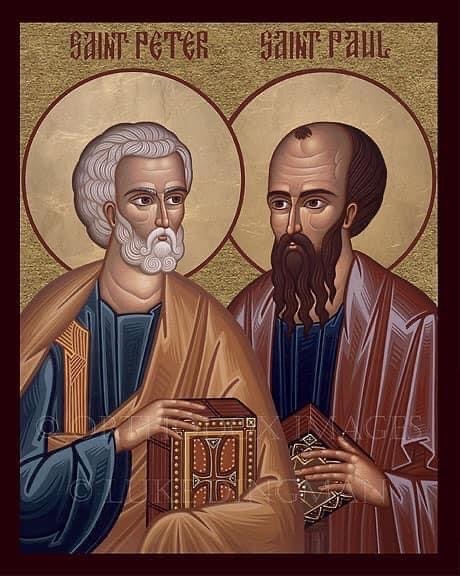
#father troy beecham#christianity#jesus#saints#god#salvation#peace#martyrs#faith#early church#christian persecution
9 notes
·
View notes
Text
"Cultural Christians in the Early Church" by Nadya Williams
I would recommend Cultural Christians in the Early Church, by Nadya Williams, to exactly the audience the author specifies: those who yearn for the "good ole days" of the church.
#CulturalChristiansInTheEarlyChurch #NadyaWilliams
I would recommend Cultural Christians in the Early Church, by Nadya Williams, to exactly the audience the author specifies: those who yearn for the “good ole days” of the church.
Part 1
The first part is the least developed, from an academic point of view, and shows the author’s weakness (Biblical studies), but her topics are sensible. She pulls out three issues the apostle Paul was dealing…

View On WordPress
0 notes
Text
The Book of Acts of the Apostles tells how the early church was born after the death and resurrection of Lord Jesus, and how the new Christian faith expanded beyond the limits of the Holy Land to the Greek and Roman world, bringing spiritual salvation to the pagans.
And among the most notable events in the early days of the new faith was the founding of the Church of Antioch where Christians received this name for the first time. From its birth, the Church of Antioch became one of the main centers of dissemination of Christianity, with the apostle Paul as one of its greatest preachers, it was most likely in this Church that the first gospels were written in the Greek language.
And as Jesus had anticipated with his parables when speaking of a new Israel no longer according to the flesh but according to the dictates of the spirit, the Church of Antioch meant the beginning of the preaching of the gospel to non-Jews.
With these words, the Book of Acts relates how after the martyrdom of Stephen, a person filled with the holy spirit, the first Christians scattered by religious persecution founded the Church of Antioch:
"Now those who had been scattered by the persecution that broke out when Stephen was killed traveled as far as Phoenicia, Cyprus and Antioch, spreading the word only among Jews. Some of them, however, men from Cyprus and Cyrene, went to Antioch and began to speak to Greeks also, telling them the good news about the Lord Jesus.
The Lord's hand was with them, and a great number of people believed and turned to the Lord" Acts 11:19-21.

0 notes
Text







Acts 2 + Revelation 2
—The Matrix Resurrections, 1:16:00
0 notes